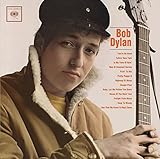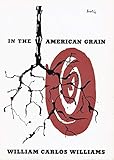 The rifle-shot drum hit that looses the organ-hymn drone of “Like a Rolling Stone” still sends me back to the small, thin-walled house of my youth, the blaring record part of my father’s Saturday morning ritual, drowning out my morning cartoons. The melancholy of Blood on the Tracks conjures the teary-eyed blur of love lost during arguments on a worn yellow velvet couch, and yet I am happy to have known such misery. These memories will not change for me, though plenty about my life will change between now and my end.
The rifle-shot drum hit that looses the organ-hymn drone of “Like a Rolling Stone” still sends me back to the small, thin-walled house of my youth, the blaring record part of my father’s Saturday morning ritual, drowning out my morning cartoons. The melancholy of Blood on the Tracks conjures the teary-eyed blur of love lost during arguments on a worn yellow velvet couch, and yet I am happy to have known such misery. These memories will not change for me, though plenty about my life will change between now and my end.
 How much has the world changed in the forty-nine years since the 1962 release of Bob Dylan’s eponymous debut album? What is the difference between the 1964 wake-up call that “the times they are a changing” and the 2000 pronouncement that “things have changed”? And what of the 2009 premonition from his latest studio album, “I feel a change comin’ on”?
How much has the world changed in the forty-nine years since the 1962 release of Bob Dylan’s eponymous debut album? What is the difference between the 1964 wake-up call that “the times they are a changing” and the 2000 pronouncement that “things have changed”? And what of the 2009 premonition from his latest studio album, “I feel a change comin’ on”?
The easiest and most common critique of Dylan is his inconsistency. True, the muddled, much maligned material from the “Christian period” does not stand up to the revelatory highs of the iconic songs that pin us to a wave of cultural history and personal emotion that has already crashed on the shore of the past, or do a better job than a mirror of showing us who we are by putting us in the shoes of a jilted lover. The intervening decades have raised the notion of consistency to an ideal, whether we’re talking fast-food burgers or internet connectivity. But lurking in everything Dylan has ever done, for better or worse, is the myth of America, its chameleon-like quality to be everything to everybody its greatest asset, permitting openness, not for the sake of change but because of its necessity. This is the history Dylan, who turns 70 years old today, has drawn from to create his own history.
 First published in 1925, William Carlos Williams’s In the American Grain confronts “history”: “It is concerned only with one thing: to say everything is dead . . . History must stay open, it is all humanity.” From the fading echo of Walt Whitman’s chanting in praise of his country, Williams calls out where we as a culture went wrong, how Whitman’s shamanistic energy was bottled into an antidote for a sickness we never felt, though we were told the ailment afflicted us all: “That force is fear that robs the emotions; a mechanism to increase the gap between touch and thing, not to have a contact.”
First published in 1925, William Carlos Williams’s In the American Grain confronts “history”: “It is concerned only with one thing: to say everything is dead . . . History must stay open, it is all humanity.” From the fading echo of Walt Whitman’s chanting in praise of his country, Williams calls out where we as a culture went wrong, how Whitman’s shamanistic energy was bottled into an antidote for a sickness we never felt, though we were told the ailment afflicted us all: “That force is fear that robs the emotions; a mechanism to increase the gap between touch and thing, not to have a contact.”
Dylan has kept his ear pressed to Williams’s “back door gossip,” fearlessly transcribing the secrets of the American condition into songs – not Whitman’s chants, more Williams’s rants, gasping in verse, at times not bothering with a chorus, charged with emotion, the byproduct of change. Love, hope, faith, doubt, hubris, death – the challenges and majesties of relationships, which in so much of Dylan are relationships of thoughts, not always bodies in places, but feelings in one’s mind. Yes, the songs brim with sense of place – shadows in meadows; “hot chili peppers in the blistering sun”; lonesome valleys; honeysuckle blooms – and yes, there are people, too – Angel flies in from the coast; Alicia Keys makes a cameo; sisters Mary Anne, Lucy and Betsy are reminded to “pray the sinner’s prayer.” But all of these places and people are of the narrative past, still kicking around in the present, at times with the permanence of a regrettable tattoo: “You try so hard but you don’t understand what you will say when you go home.”
Dylan’s interest in change is more about the phases of his life than the cultural changes afoot at any given time. This is why the songs are timeless – we as listeners can situate ourselves in them, both in the lyrics and the sound of the songs, the pure emotional release they enable, whether pangs of heartache or the fancy of running along a “hilltop following a pack of wild geese.” Like any great writer, Dylan forges anew something we take for granted: “The sun’s not yellow it’s chicken.”
I don’t think Dylan has ever written a song to influence change. But he has long mined that vein of American identity, the one you can’t quite see through the skin except when you strain, though if you sit still in a quiet place you can always hear and feel its beat. The themes pounded out have not changed, and in this sense neither has Dylan. He casts his net of perception and pulls in songs. The anger that has bubbled up from Dylan not promoting dissidence during a recent tour of China misses the point of Dylan’s purpose. He sings that you’ve got to serve somebody. He serves himself. This is not to say he is indifferent about injustice, say the arrest of Ai Weiwei, but for all that his words freight, they speak beyond us as individuals, though we listen and make them our own. Writing at Slate, Ron Rosenbaum asks why these critics expected him to sing his most political songs, or do as Bjork did at the end of a 2008 concert there, shouting “Tibet.”
If there is one thing Dylan knows for sure is that one shout, one song, these do not change the world, especially in 2011. Today, if Dylan made his move from acoustic to electric, would the crowds even boo or would they just hold up their phones, uploading their discontent?
Dylan, like Williams, Whitman, and others of their poetic, patriotic ilk, sucks the marrow from America, gnaws on its bones and slurps – not so much concerned with decorum but getting the flavors – the grease stains on his sleeves, the gristle stuck in his teeth, evidence of the contact. These flavors he tastes are not always the same or always enjoyable, but they spring from deep-running sources, some of which are polluted or diverted, but their purity remains unquestionable. Unlike the aforementioned men of letters whose legacies have grown mythical after their deaths, Dylan has lived side-by-side with his own lore, equal parts his creation and the creation of others.
Imagine living a life where people think you did change the world, or that you have the power to change the world. True, for some people, Dylan has changed their world, influenced their personal histories. But how has it impacted the country, the world at large?
Acknowledging that he does pay some attention to what is said about him, Dylan recently addressed the China issue via a post on his website. What is more interesting than his assertion that he in no way was censored by the Chinese government is his closing remark: “Everybody knows by now that there’s a gazillion books on me either out or coming out in the near future. So I’m encouraging anybody who’s ever met me, heard me or even seen me, to get in on the action and scribble their own book.”
A hyper-political protest singer, a shill for Victoria’s Secret, a seventy-year-old curmudgeon – think whatever you like of him. Write your own history of Bob Dylan, he dares us, it’s the only accurate one that will ever exist.




